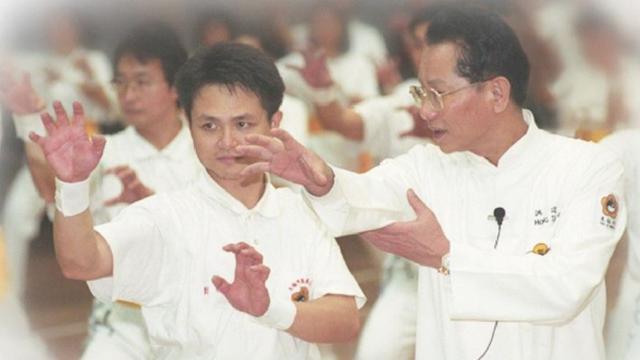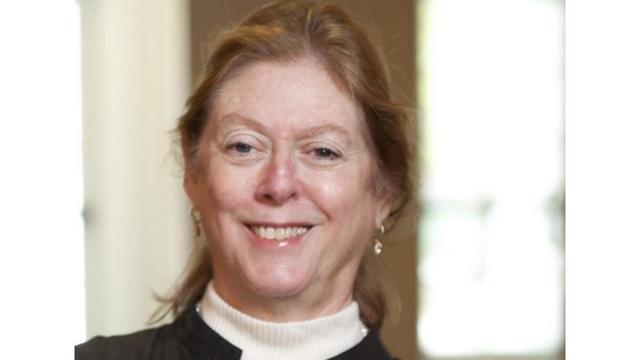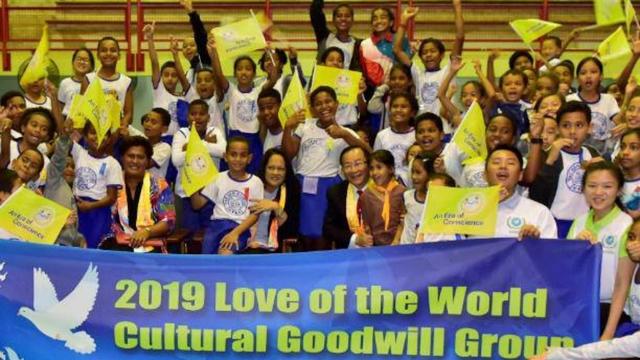At the core of Tai Ji Men is a call to change our hearth, help others, and bring peace and love to the whole world.
by Jackson Chun-Chi Chih*
* A paper presented at Session 12, “New Religious Movements in Taiwan,” of the 4th annual meeting of EASSSR, the East Asian Society for the Scientific Study of Religion, Taipei, August 13, 2022.

Most international scholars who have studied Tai Ji Men have focused their attention on the Tai Ji Men case, i.e., the harassment of the Taiwan-based spiritual moment through ill-founded taxes, following the politically motivated crackdown of 1996 and the decision of Taiwan’s Supreme Court that in 2007 exonerated Tai Ji Men defendants from all charges, including tax evasion.
My paper is about a different matter, Tai Ji Men’s teachings on “Heart Kung Fu” and altruism. As we shall see, however, these teachings also help understanding Tai Ji Men’s reaction to the legal and tax case.
The word “altruism” was introduced into the English language from the French word “altruisme.” In turn, the French word is based on the Latin “alter,” which means “the other.” Altruism, thus, indicates an act turned towards the other, a selfless act for the welfare of others. Contemporary American philosopher Thomas Nagel argues that altruism does not necessarily imply sacrificing oneself. At its core is the willingness to think for the benefit of others.
According to American political scientist Kristen Renwick Monroe, altruism, when used as an analytical tool, reveals a major limitation of political theory. The latter is based on the assumption that human nature is inherently self-interested. Altruism challenges this presupposition.

Altruism is summarized by Monroe in the following five criteria:
(1) Altruism must be acted upon.
(2) Altruistic behavior must be goal-oriented, with the goal of enhancing the well-being of others.
(3) In an altruistic act, the intention is more important than the result.
(4) Altruistic behavior may result in harm to the actors themselves.
(5) Altruism is unconditional and the actors cannot expect any reward.
Therefore, altruism is the contrary of egoism, where the interests of others are subordinated to our own, and upholds two principles in thought and behavior:
(1) to consider benefiting others more than benefiting ourselves; and
(2) to sacrifice ourselves for the benefit of others.
Accordingly, an altruistic behavior can be divided into three levels:
(1) Considering the interests of others and ourselves as equally important.
(2) Putting the benefit of others above our own benefit, and
(3) Sacrificing ourselves for the benefit of others.
“Altruistic behavior” is also a key concept of ethics and psychology. In ethics, it is believed that caring for others in a selfless manner and taking at interests of others into account is a necessary pre-condition for morality. Mere self-interest cannot work as the foundation of a moral system.
From the perspective of psychology, it is believed that human beings are born with a sense of compassion, which is the root of altruism. As summarized in the dictionary of Taiwan’s National Academy for Educational Research, the psychological functions of altruism are three:
(1) reflexive: when we witness others suffering, we empathize with them;
(2) reflective: we are aware of the suffering of others;
(3) intellectual: we grasp concepts such as loyalty, generosity, love, compassion, rescue, and understanding.
Altruism, as Monroe suggests, comes with a condition of entry. It is only possible to be altruistic if one can truly recognize the meaning of altruistic behavior from the heart. A purely intellectual approach only results in empty talk.

In Taoist terms, the heart is the center of the whole being, like the root of a tree or the tip of a fruit. To be altruistic, we should have a righteous heart and a conscience leading to good deeds. The central teaching of Tai Ji Men’s Shifu (Grand Master), Dr. Hong Tao-Tze, is that we need to reforms our own heart and our own conscience, which would inspire us to help others and participate in a movement that promotes conscience and peace throughout the world.
Tai Ji Men’s “Heart Kung Fu” correspond to Monroe’s statement that without changing our heart first, altruism is impossible. Tai Ji Men proposes three passages. First, reform our heart and put conscience at the center. Second, spread the message of love and conscience to others. Third, extend altruism to the whole world.
In accordance with the principle of Tai Ji and Yin-Yang, Taoism teaches that we should have a benevolent heart of “compassion for Heaven and human beings,” and a heart of “nurturing all beings.” The education of dizi (disciples) of Tai Ji Men in accordance with the principles taught by their Shifu aims at achieving this reform of the heart.
Tai Ji Men also teaches that every woman and man is the leader and guide of her or his own conscience. The key to unlocking the energy of peace is in our hands. With a reformed heart, everybody will be able to speak kind words and perform good deeds to spread the positive influences of goodness.
Dr. Hong Tao-Tze once stated that, “Kind intentions and good hearts are the positive energies necessary to safeguard the Earth’s sustainable development.” He teaches that we should start from ourselves and spread the message of goodness to others. When the energies of goodness are connected, spread, and expanded, Tai Ji Men believes that an ideal one world of love and peace will become a reality.
This message has been spread by Tai Ji Men to all continents through hundreds of events. To date, Tai Ji Men master and disciples have visited 101 countries and over 300 cities at their own expenses, participating in more than 3,000 domestic and international cultural performances. They also promote citizen diplomacy for international peace and present to the world the beauty of traditional Chinese and Taiwanese culture. Four current and former presidents have expressed their gratitude to Tai Ji Men. Dizi have been invited ten times to perform at National Day celebrations. They have performed in front of Presidents and members of the diplomatic corps eight times.
On January 1, 2014, the Federation of World Peace and Love (FOWPAL), the Association of World Citizens (AWC), and Tai Ji Men Qigong Academy jointly promulgated the Movement of An Era of Conscience.
At present, there are already 200 countries and more than 57,000 individuals who have responded to the appeal, and more than 274,000 have signed the Declaration of Conscience.

Since April 5, 2018, Dr, Hong and his disciples held several meetings with ambassadors from Bahrain and Kiribati at the United Nations headquarters in New York and Vienna to jointly develop a resolution on “Promoting a Culture of Peace with Love and Conscience.” To promote the resolution, Tai Ji Men Shifu and dizi visited 38 countries in one and a half years.
The International Day of Conscience Declaration was launched at the United Nations in New York on February 5, 2019, and translated into 42 languages. A global online Declaration signing movement was launched.
On July 25, 2019, the 73rd United Nations General Assembly adopted a resolution also entitled “Promoting a Culture of Peace through Love and Conscience,” submitted by the Kingdom of Bahrain and declaring April 5 as the International Day of Conscience, the 166th United Nations’ Day of Observance. The United Nations’ designation of the International Day of Conscience offers a unique opportunity for a yearly global meditation on the importance of reforming our hearts, turning to conscience, and creating a conscience-based culture of peace.
In anticipation of the first United Nations International Day of Conscience, a 45-hour live webcast was broadcast in all time zones around the world on April 5, 2020. This happened during the COVID-19 pandemic and was an opportunity to also present Tai Ji Men’s suggestions about the epidemic.
The “Declaration of the International Day of Conscience” has been signed by more than 61,788 people from 197 countries so far.
These developments illustrate how Tai Ji Men’s “Heart Kung Fu” and altruism work in practice. It all starts with a reform of the heart and a focus on conscience, which gradually expands to society and, through international institutions, to the whole world.

As I mentioned earlier, Heart Kung Fu and altruism also help understanding Tai Ji Men’s attitude to the legal and tax case in which it has been involved. I would just mention here two points.
Tai Ji Men believes it has been the victim of gross injustice perpetrated by some rogue bureaucrats. However, it refused to be fixated in a victim-victim situation. By promoting a national campaign about conscience, it hopes that even these bureaucrats, and the politicians above them, will awaken to their conscience and rectify the injustices.
Second, Tai Ji Men dizi themselves started from their own case to extend altruistically their compassion to others who in Taiwan are victims of ill-founded tax bills. They discovered that, according to the statistics of the Administrative Enforcement Agency, in 1990, there were in Taiwan less than 1.9 million cases of unpaid taxes and fees being enforced, but 20 years later, in 2020, the number of cases had increased dramatically to 14.31 million, which means that among the 23.5 million citizens of Taiwan more than half are involved in unresolved tax cases. This is a systemic problem, which is also fueled by the system of bonuses paid to tax bureaucrats on the tax bills they enforce.
Tai Ji Men dizi came to realize that what happened to them is part of a larger problem. Therefore, since 2016, through the Alliance for Legal and Tax Reform, they have been working with taxpayers who are not part of Tai Ji Men, and have held more than 1,000 seminars and activities under the “Real Legal Tax Reform with Conscience to Save Taiwan” series. More than 700 experts, scholars, and young people have participated in the talks and seminars, covering 49 schools, 19 counties and cities in Taiwan, and more than 7,400 chief of village have signed the “Proposals for Tax Reform.”

In addition to the above lectures and activities, street campaigns have informed Taiwanese citizens about their legal and human rights.
This campaign is aimed at achieving practical results, as better-informed citizens would be better prepared to defend themselves against the unreasonable claims of tax bureaucrats. However, for the Tai Ji Men dizi who participate in their activities, this is a manifestation of altruism. They believe that helping others is the best way to help themselves and help society as a whole.
It is yet another example of the movement of Heart Kung Fu: from changing our hearts and acquiring a compassionate heart, which includes a focus on conscience and altruism, to put altruism into practice by helping others, and creating an altruistic movement whose effects extend to national and even international society as a whole.
Source: Bitter Winter

